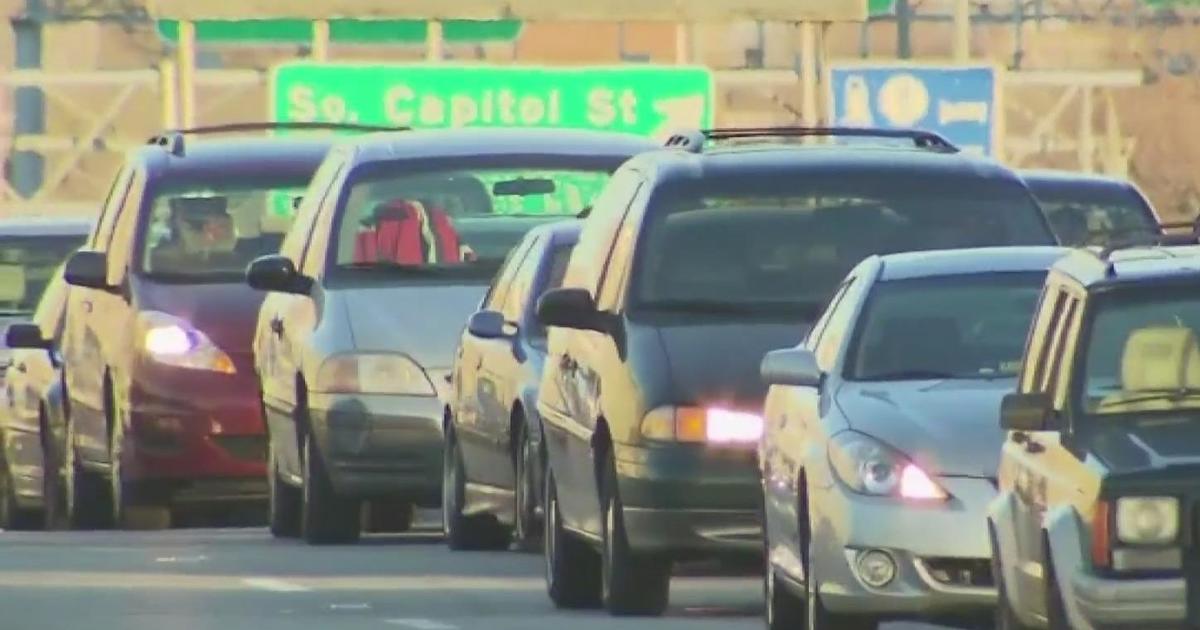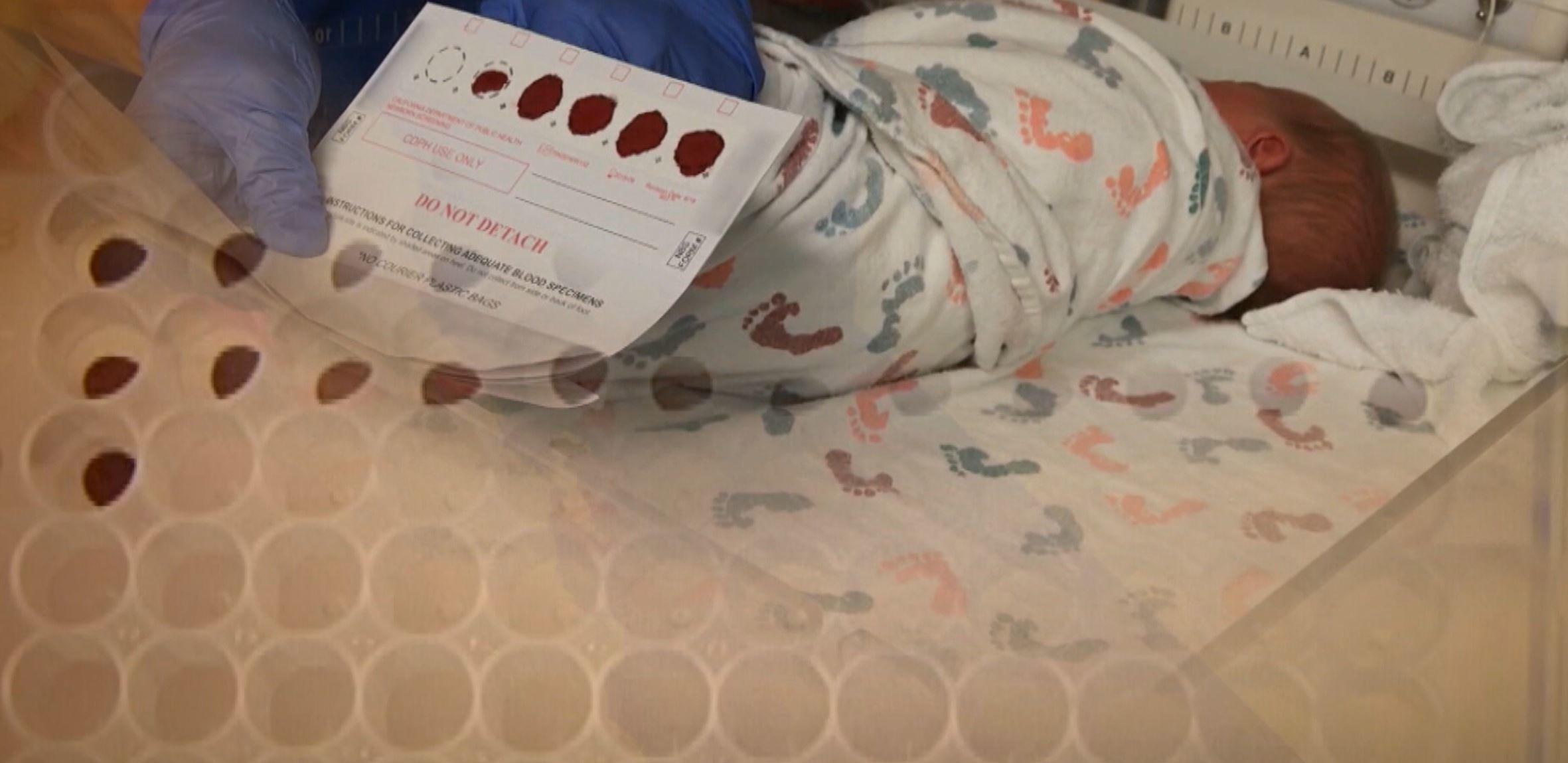June 2014 California Primary Election Voter Guide: Prop 41 - Veterans Housing
WHAT IS IT?
Authorizes $600 million in general obligation bonds for affordable multifamily supportive housing to relieve homelessness, affordable transitional housing, affordable rental housing, or related facilities for veterans and their families. Fiscal Impact: Increased state bond costs averaging about $50 million annually over 15 years.
RELATED: June 2014 Voter Guide
FISCAL EFFECTS
Bond Costs. This measure would allow the state to borrow up to $600 million by selling general obligation bonds to investors, who would be repaid using general tax revenues. The cost of these bonds would depend on their interest rates and the time period over which they are repaid.
Read the full text
We assume that (1) the interest rate for these bonds would average 5 percent, (2) they would be sold over the course of five years, and (3) they would be repaid over a ten-year period. Based on these assumptions, the cost to taxpayers to repay the bonds would average about $50 million annually for 15 years. This amount is less than one-tenth of 1 percent of the state budget.
WHAT IF I VOTE YES?
The state would sell $600 million in general obligation bonds to fund affordable multifamily housing for low-income and homeless veterans.
WHAT IF I VOTE NO?
The state would not sell $600 million in general obligation bonds to fund affordable multifamily housing for low-income and homeless veterans.
ARGUMENT IN FAVOR OF PROPOSITION 41
Prop. 41, the Veterans Housing and Homeless Prevention Act of 2014, redirects $600 million of previously approved, unspent bond funds to construct and rehabilitate housing for California's large population of homeless veterans. This Act will construct affordable, supportive, and transitional housing for homeless and near homeless veterans without raising taxes.
ARGUMENT AGAINST PROPOSITION 41
Proposition 41 would authorize the State to borrow (by selling bonds) $600 million out of $900 million in bonds previously approved by voters in 2008 for use by the CalVet Home and Farm Loan Program. The issue is whether such a diversion of funds is wise.
TEXT
This law proposed by Assembly Bill 639 of the 2013–2014 Regular Session (Chapter 727, Statutes of 2013) is submitted to the people in accordance with the provisions of Article XVI of the California Constitution.
This proposed law adds sections to the Military and Veterans Code; therefore, new provisions proposed to be added are printed in italic type to indicate that they are new.
PROPOSED LAW
SECTION 1. Article 5y (commencing with Section 998.540) is added to Chapter 6 of Division 4 of the Military and Veterans Code, to read:
Article 5y. The Veterans Housing and Homeless Prevention Bond Act of 2014
998.540. This article shall be known and may be cited as the Veterans Housing and Homeless Prevention Bond Act of 2014.
998.541. (a) California is home to almost two million veterans, more than any other state in the nation, and with the winding down of the wars in Iraq and Afghanistan, an unprecedented number of California veterans will return to our communities, many in need of housing, employment, mental health and drug treatment, and physical rehabilitation.
(b) Unfortunately, California also leads the nation in the number of homeless veterans, roughly 25 percent of the nation's homeless veterans live in California, approximately 19,000 veterans. According to the California Research Bureau, Los Angeles is number one in terms of the number of homeless veterans followed by the San Diego region at number three, and the San Francisco Bay Area at number nine.
(c) Moreover, the face of the nation's homeless veterans' population is changing as more OIF/OEF veterans find themselves in a downward spiral towards homelessness and, increasingly, female veterans and their children comprise more and more of the homeless veteran demographic.
(d) With their higher rates of post-traumatic stress disorder, substance abuse, and unemployment, as well as the higher incidence of sexual trauma experienced by our female veterans, current homeless veterans, all too often, cycle in and out of our jails, hospitals, and treatment programs, disproportionately drawing down services without receiving the proper services to stabilize their lives.
(e) The Legislature must advance a comprehensive, coordinated, and cost-effective approach to respond to
the housing needs of our veterans. Such an approach should leverage public and private resources as well as
align housing and services.
(f) Five years ago, Californians overwhelmingly affirmed their gratitude to our veterans by approving Proposition 12, a nine hundred million dollars ($900,000,000) general obligation bond intended to help veterans specifically purchase single family homes, farms, and mobilehomes through the CalVet Home Loan Program.
(g) As a result of the nation's economic crisis and state's housing downturn coupled with the changing demographics of our veterans, the Farm and Home Loan Program, as approved by Proposition 12, has been significantly undersubscribed. Five years since its passage, the full nine hundred million dollars ($900,000,000) remains unspent as does a portion of the five hundred million dollars ($500,000,000) from Proposition 32, which was approved by the voters in 2000.
(h) Meanwhile, the need of veterans for multifamily housing that is affordable, supportive, and transitional remains unmet and public and private resources available for these purposes remain underutilized.
(i) California voters should be granted the opportunity to restructure the Proposition 12 veterans' bond program to better respond to the housing needs as well as the changing demographics of the current veteran population.
(j) The Veterans Housing and Homeless Prevention Bond Act of 2014 will restructure six hundred million dollars ($600,000,000) of the existing Proposition 12 bond moneys to allow for the construction and rehabilitation of multifamily housing for veterans and prioritize projects that align housing with services. Even with this restructuring of bond moneys, the act still preserves over half a billion dollars for the existing CalVet Farm and Home Loan Program.
(k) The Veterans Housing and Homeless Prevention Bond Act of 2014 will expand housing and service options for veterans, cost-effectively leverage public dollars, reduce the number of homeless veterans and its attendant public costs, and place California at the forefront of our nation's efforts to end veterans' homelessness by 2015.
998.542. (a) The State General Obligation Bond Law (Chapter 4 (commencing with Section 16720) of Part 3 of Division 4 of Title 2 of the Government Code), as amended from time to time, except as otherwise provided herein, is adopted for the purpose of the issuance, sale, and repayment of, and otherwise providing with respect to, the bonds authorized to be issued by this article, and the provisions of that law are
included in this article as though set out in full in this article. All references in this article to "herein" refer both to this article and that law.
(b) For purposes of the State General Obligation Bond Law, the Department of Veterans Affairs is designated the board. The Department of Veterans Affairs shall carry out the board duties in consultation with the California Housing Finance Agency and the Department of Housing and Community Development.
998.543. As used herein, the following terms have the following meanings:
(a) "Board" means the Department of Veterans Affairs.
(b) "Bond" means a veterans' bond, a state general obligation bond, issued pursuant to this article adopting the provisions of the State General Obligation Bond Law.
(c) "Bond act" means this article authorizing the issuance of state general obligation bonds and adopting the State General Obligation Bond Law by reference.
(d) "Committee" means the Housing for Veterans Finance Committee, established pursuant to Section 998.547.
(e) "Fund" means the Housing for Veterans Fund, established pursuant to Section 998.544.
998.544. (a) Bonds in the total amount of six hundred million dollars ($600,000,000), or so much thereof as is necessary, not including the amount of any refunding bonds, or so much thereof as is necessary, may be issued and sold to provide a fund to be used for carrying out the purposes expressed in subdivision (b) and to reimburse the General Obligation Bond Expense Revolving Fund pursuant to Section 16724.5 of the Government Code. The bonds, when sold, shall be and constitute a valid and binding obligation of the State of California, and the full faith and credit of the State of California is hereby pledged for the punctual payment of both principal of, and interest on, the bonds as the principal and interest become due and payable.
(b) The proceeds of bonds issued and sold pursuant to this section shall be made available to the board for the purposes of creating a fund to provide multifamily housing to veterans and their families pursuant to the Veterans Housing and Homeless Prevention Act of 2014 (Article 3.2 (commencing with Section 987.001)), and any subsequent statutory enactment that amends that act or enacts or amends any successor act for the purpose of providing housing to veterans and their families.
(c) The Legislature may, from time to time, by majority vote, amend the provisions of this act for the purpose of improving program efficiency, effectiveness, and accountability, or for the purpose of furthering overall program goals.
(d) The proceeds of bonds issued and sold pursuant to this article shall be deposited in the Housing for Veterans Fund, which is hereby created.
998.546. The bonds authorized by this article shall be prepared, executed, issued, sold, paid, and redeemed as provided in the State General Obligation Bond Law (Chapter 4 (commencing with Section 16720) of Part 3 of Division 4 of Title 2 of the Government Code), and all of the provisions of that law, except subdivisions (a) and (b) of Section 16727 of the Government Code, shall apply to the bonds and to this article and are hereby incorporated in this article as though set forth in full in this article.
998.547. Solely for the purpose of authorizing the issuance and sale pursuant to the State General Obligation Bond Law of the bonds authorized by this article, the Housing for Veterans Finance Committee is hereby created. For purposes of this article, the Housing for Veterans Finance Committee is "the committee" as that term is used in the State General Obligation Bond Law. The committee consists of the Controller, Treasurer, Director of Finance, Secretary of Business, Consumer Services, and Housing, and Secretary of Veterans Affairs, or their designated representatives. The Treasurer shall serve as chairperson of the committee. A majority of the committee may act for the
committee.
998.548. The committee shall determine whether or not it is necessary or desirable to issue bonds authorized pursuant to this article in order to carry out the actions specified in Section 998.544 and, if so, the amount of bonds to be issued and sold. Successive issues of bonds may be authorized and sold to carry out those actions progressively, and it is not necessary that all of the bonds authorized to be issued be sold at any one time.
998.549. There shall be collected each year and in the same manner and at the same time as other state revenue is collected, in addition to the ordinary revenues of the state, a sum in an amount required to pay the principal of, and interest on, the bonds each year. It is the duty of all officers charged by law with any duty in regard to the collection of the revenue to do and perform each and every act that is necessary to collect that additional sum.
998.550. Notwithstanding Section 13340 of the Government Code, there is hereby appropriated from the General Fund in the State Treasury, for the purposes of this article, an amount that will equal the total of the following:
(a) The sum annually necessary to pay the principal of, and interest on, bonds issued and sold pursuant to this article, as the principal and interest become due and payable.
(b) The sum necessary to carry out Section 998.551, appropriated without regard to fiscal years.
998.551. For the purposes of carrying out this article, the Director of Finance may authorize the withdrawal from the General Fund of an amount not to exceed the amount of the unsold bonds that have been authorized by the committee to be sold for the purpose of carrying out this article. Any amounts withdrawn shall be deposited in the fund. Any money made available under this section shall be returned to the General Fund from proceeds received from the sale of bonds for the purpose of carrying out this article.
998.552. All money deposited in the fund that is derived from premium and accrued interest on bonds sold, in excess of any amount of premium used to pay costs of issuing the bonds, shall be reserved in the fund and shall be available for transfer to the General Fund as a credit to expenditures for bond interest.
998.553. Pursuant to Chapter 4 (commencing with Section 16720) of Part 3 of Division 4 of Title 2 of the Government Code, all or a portion of the cost of bond issuance may be paid out of the bond proceeds, including any premium derived from the sale of the bonds. These costs shall be shared proportionally by each program funded through this bond act.
998.554. The board may request the Pooled Money Investment Board to make a loan from the Pooled Money Investment Account, including other authorized forms of interim financing that include, but are not limited to, commercial paper, in accordance with Section 16312 of the Government Code, for purposes of carrying out this article. The amount of the request shall not exceed the amount of the unsold bonds that the committee, by resolution, has authorized to be sold for the purpose of carrying out this article. The board shall execute any documents required by the Pooled Money Investment Board to obtain and repay the loan. Any amounts loaned shall be deposited in the fund to be allocated by the board in accordance with this article.
998.555. The bonds may be refunded in accordance with Article 6 (commencing with Section 16780) of Chapter 4 of Part 3 of Division 4 of Title 2 of the Government Code, which is a part of the State General Obligation Bond Law. Approval by the voters of the state for the issuance of the bonds described in this article includes the approval of the issuance of any bonds issued to refund any bonds originally issued under this article or any previously issued refunding bonds.
998.556. Notwithstanding any other provision of this article, or of the State General Obligation Bond Law, the Treasurer may maintain separate accounts for the investment of bond proceeds and for the investment of earnings on those proceeds. The Treasurer may use or direct the use of those proceeds or earnings to pay any rebate, penalty, or other payment required under federal law or take any other action with respect to the investment and use of those bond proceeds required or desirable under federal tax law or to obtain any other advantage under federal law on behalf of the funds of this state.
998.557. The Legislature hereby finds and declares that, inasmuch as the proceeds from the sale of bonds authorized by this article are not "proceeds of taxes" as that term is used in Article XIII B of the California Constitution, the disbursement of these proceeds is not subject to the limitations imposed by that article.



